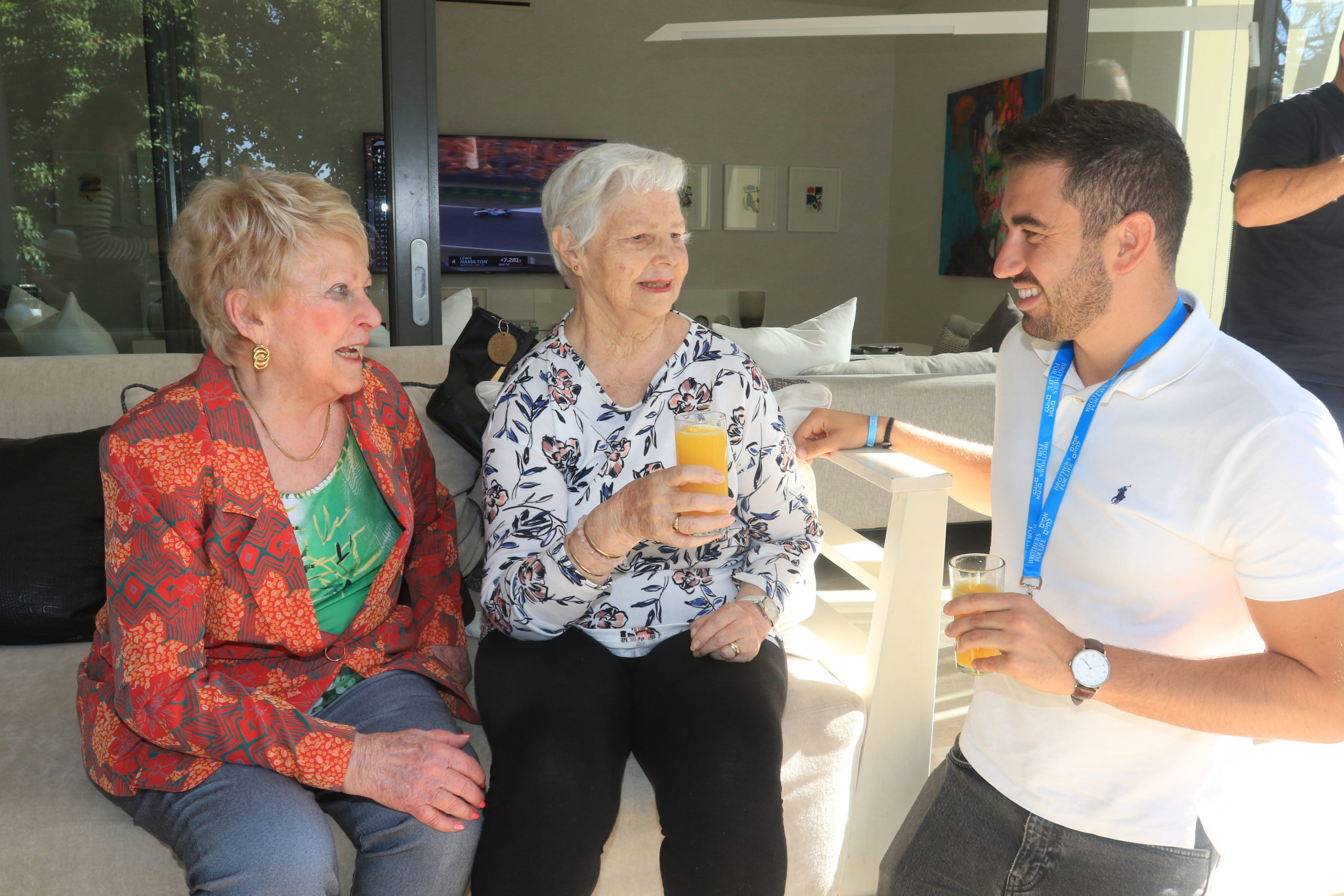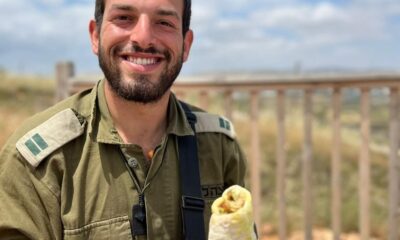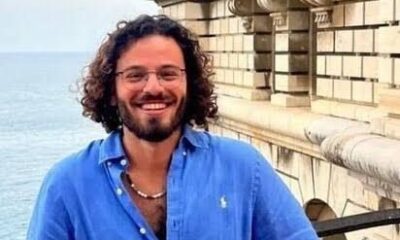
Lifestyle/Community

From horror to healing: soldiers and survivors share stories
A soldier breaks down as he speaks of losing multiple friends in Gaza during Operation Protective Edge. A survivor recalls the last time she saw her father before he was taken to Buchenwald concentration camp. They may have faced wars in different generations, but as Israeli soldiers and Holocaust survivors revealed their scars at a recent Johannesburg tea, they understood their connections and the hope they share through the state of Israel.
“I hope you realise that without your stories, the state of Israel would never have existed in the first place,” said Ohad Poraz, addressing the survivors. Poraz is the Israeli leader of a delegation visiting South Africa from Brothers for Life (BFL), a non-profit organisation where injured Israel Defense Forces (IDF) soldiers support one another through the lingering traumas they face. At the tea, the soldiers and survivors met and shared their stories, the hallmark event of an annual BFL trip that was paused for the past two years because of the COVID-19 pandemic.
“Through these delegations to South Africa, the soldiers realise that their injuries are for a global cause and not just something they carry themselves,” said Saul Jassinowsky, the head of the delegation in South Africa. Over the years, volunteer South African host families have opened their homes to more than 120 Israeli soldiers from BFL who suffer from post-traumatic stress disorder (PTSD) and have a unique story to tell.
He’s taken delegations around the world, but Poraz said there was something special about the Johannesburg Jewish community. “The love for Israel and for us, the injured soldiers, is something I’ve never seen before. Because of that, we find the strength to speak about what happened to us because nobody will judge us.”
With this sharing, something many battle to do even with close family, comes significant healing. “A lot of us haven’t cried in years as we don’t feel comfortable. Here, everyone is embracing you and crying with you. It gives us so much strength and motivation because it’s not just for the week we spend here, we stay in touch with the families that host us for the rest of our lives.”
At the tea, as the soldiers shared their stories and talked to Holocaust survivors, the meaning and history of the country they fought to protect was illuminated. “Most of the things that we’re doing now are based on their bravery and will to survive,” said soldier Omri Ohayon, on meeting Holocaust survivors.
Ohayon said his own connection to the Holocaust had influenced his journey. “My great grandmother was one of four siblings. They were all born in Poland, two stayed, one left for Israel just before the war, the other one, my great grandmother, went to Argentina.” Her sister, Gela Seksztajn, who married Izrael Lichtensztejn, remained in the Warsaw Ghetto.
“From a young age, Gela was a painter who painted portraits of children in the ghetto. When war broke out, she and Izrael understood that they didn’t have much time left, so Izrael took all her paintings and put them in bottles of milk. He hid them in a secret place in the ghetto. After the war, where the couple and their daughter, Margalit, were killed, Gela’s paintings were found and delivered to Israel. Today they are displayed in Yad Vashem and the POLIN Museum of the History of Polish Jews in Krakow.”
Included in one bottle of milk was Gela’s will. “She wrote her will for the next generation, saying we should do all we can to prevent such devastation from ever happening again,” said Ohayon, who himself was injured during a tunnel operation during Operation Protective Edge and now has PTSD.
“After I embarked on rehabilitation and Operation Protective Edge ended, I decided to go back to my unit. However, I wanted to be on the side of those who give injured soldiers medical care.” Ohayon went on to complete a paramedic course and head up combat medical care in his unit.
“I printed and framed Gela’s will, and put it in my office so I could look at it every day and remember why we’re doing what we’re doing,” he said. “Being here in front of Holocaust survivors, this amazing community, and my great friends, is fulfilling Gela’s will and making sure that such devastation will never happen again. Being able to protect and defend the Jewish state for this generation of survivors, especially, isn’t something I take for granted.”
Dutch-born survivor Irene Fainman felt an additional connection to the soldiers because her South African husband served in the IDF as a young man, she told the SA Jewish Report. Discussing how she survived the Holocaust, Fainman recalled how Dutch Nazis came into her family’s Rotterdam home when she was six years old and gave them ten minutes to pack a suitcase.
“We walked through the night and slept on a warehouse floor. The next morning, we were on a train to a camp on the Dutch-German border called Westerbork. Every Tuesday at that camp, 1 000 Jews were sent to Auschwitz.” Though her beloved father was sent to another camp, Buchenwald, never to be seen again, Fainman, her mother, and brother narrowly escaped being sent to Auschwitz, essentially a death sentence.
“One of the Germans took a shine to me because she thought I looked very Aryan as I had blonde hair and blue eyes,” recalled Fainman. “One day, she called my mother in and there was a list with our names on it – my maiden name was Krausz – to go to Auschwitz the next day. And she said to my mother, ‘I’m not letting them take you and your children away’.
“I’ll never forget this, there was the list, and she took a red pencil, she crossed out Krausz, Krausz, and Krausz, and she put the names of three other Jewish people whom I will never know. They went and didn’t come back, and we’re here. That’s luck, don’t tell me it isn’t. People say to me, ‘Hashem saved you.’ Of course he didn’t. Why save me? I was one little girl, why didn’t he save the other one and a half million innocent Jewish children who died in the Holocaust? Why me, why not them? You don’t have to agree with me, but I’m entitled to my opinion.”
Also in attendance was Israeli Ambassador Eli Belotsercovsky who spoke of the sacred work done by BFL as well as the special connection the Holocaust survivors and soldiers share through acts of heroism. He honoured the survivors, and said Israel owed the visiting soldiers a debt of gratitude.
“These soldiers are struggling to build their lives. Those who haven’t gone through this can’t really understand how difficult it is,” he said. Yet, judging by the stories they bravely shared and the connections they formed, it’s clear that they’re on the right track.










